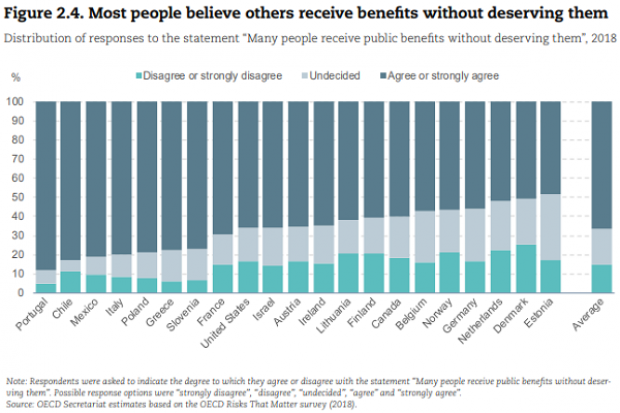People living in some of the wealthiest countries in the world are worried about their economic futures and don’t trust government programs to provide much help if and when they need it, according to an in-depth survey by the Organisation for Economic Co-operation and Development.
The OECD asked 22,000 people in 21 countries including the United States about their views on a range of economic issues such as job stability, retirement funds, housing, health care and the ability to meet expenses over time and found what it called “a clear sense of dissatisfaction and injustice” when it comes to current policies and social programs related to those areas.
The biggest concerns were related to health and income, with majorities in both countries saying they were worried about paying their bills and what would happen to them if they became sick or disabled. Most respondents said they don’t think they receive a fair share of the public benefits they pay for through taxes and worried that others were taking benefits unjustly.
Stefano Scarpetta of the OECD said the survey results were “deeply worrying,” since they come from citizens of wealthy countries that spend more than 20 percent of their economic output on average on social policies – roughly equivalent to $8,000 per person each year. Those policies have been quite effective, Scarpetta said, with people living longer and healthier lives than ever before due in large part to public spending on social welfare programs, but millions of people don’t see it that way.
Dissatisfaction with current policies hasn’t led to widespread rejection of social spending, though. Most respondents said they’d like to see more spending on social programs, not less, and nearly 40 percent said they’d pay an extra 2 percent in income taxes to help strengthen retirement plans and health care services.
Read the full survey results here.





